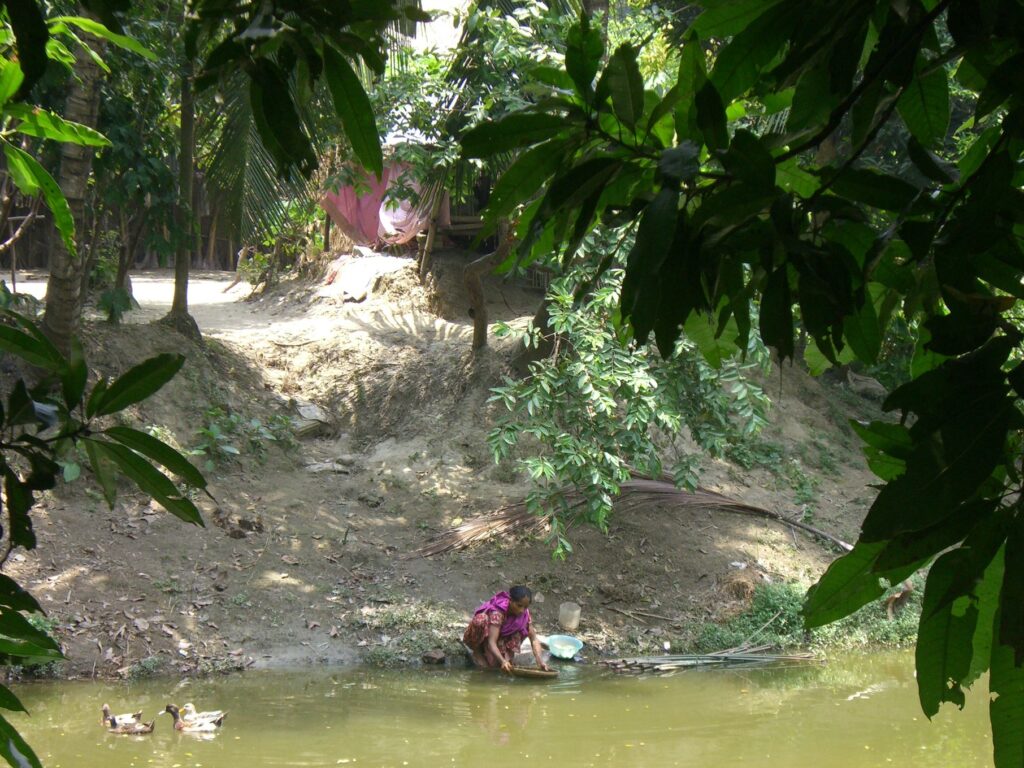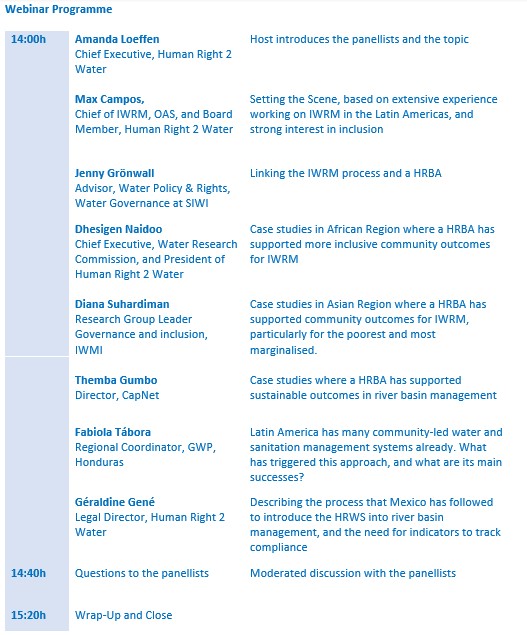Webinar 2nd September 2020, 14:00h-15:30h CET (07:00h Mexico, 21:00h Malaysia)
Click here to register in advance
Click here to read more about our panellists.
Integrated Water Resources Management (IWRM) is a process which promotes the coordinated development and management of water, land and related resources in order to maximise economic and social welfare in an equitable manner without compromising the sustainability of vital ecosystems and the environment.
It is well recognised as an important way to consider all uses of water in a river basin, but it is extraordinarily difficult and complex to achieve in many cases. IWRM is a scientific approach, usually managed by scientists, but it can overlook the need to fully consider all vulnerable groups, and the protection of the human rights to water, in addition to the right to a healthy environment, the right to food, to life and to health. There are often people that fall outside of the regular land ownership and tenure laws, that do not automatically get protected.
The Human Rights Based Approach (HRBA) provides a process and a legal methodology for inclusion of all people, for non-discrimination, participation, sharing of data, and accountability. By taking into account the needs and rights of all vulnerable groups, and including them in the decision-making process, a sustainable solution is more likely to be supported.
The many competing—and sometimes conflicting—demands on water resources will give rise to questions of equity and justice, such as what would be considered to be a ‘fair’ or ‘balanced’ allocation of water for competing uses. The human rights system offers an important entry point for such questions of justice.

Within the legal system, human rights law is not a silver bullet. However, it does offer a broadly (almost universally) endorsed normative and legal framework that sets minimum standards for governance and that defines the rights and obligations of different categories of institutions. Because access to safe drinking water and sanitation has been recognized as a human right (generally abbreviated as the human rights to water and sanitation, HRWS), the human rights system offers opportunities to streamline water governance and to provide coherence both in the sphere of environmental sustainability and in terms of human development. Therefore, introducing human rights-based minimum standards for justice into IWRM is an important starting point in securing a ‘just’ allocation of scarce freshwater resources.
This webinar examines some of the tools and case studies behind this approach, pulling on experts in human rights, water governance and IWRM from different parts of the world. We hope to share some of the thinking behind the HRBA and encourage more inclusive management of water rights.



